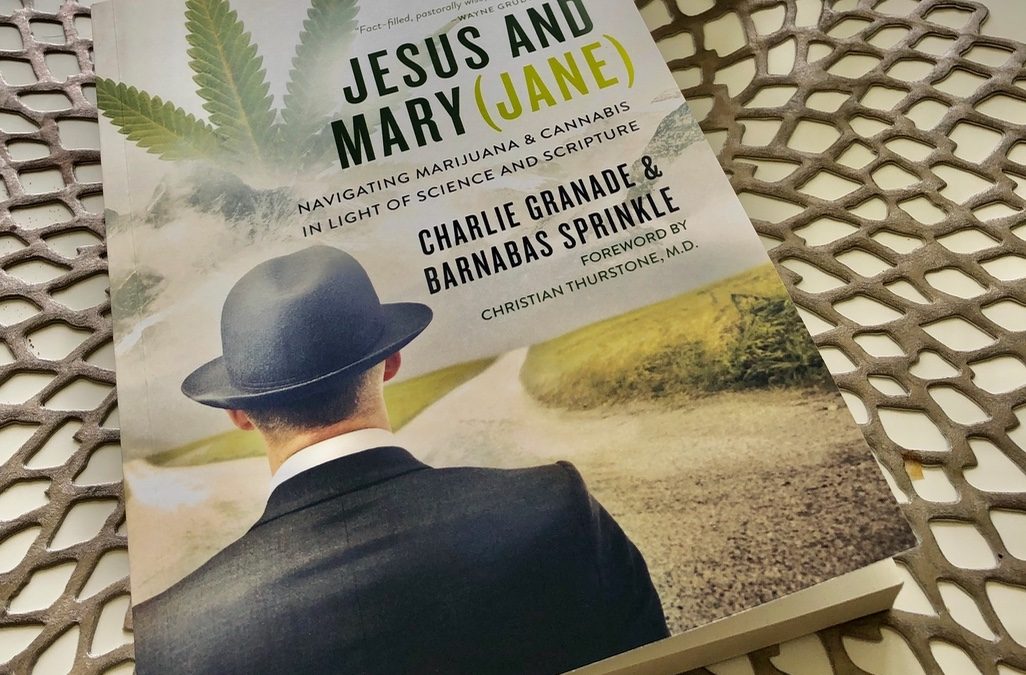My wife and I are always honored when someone seeks our help with the treatment of addiction and mental health. The call we received from Charlie Granade, pastor of Grace Baptist Church in Rogue River, Ore., was certainly no exception.
He and the Rev. Barnabas Sprinkle, pastor of Liberty Corner Presbyterian Church in Liberty Corner, N.J., have different theological and political views they decided to put aside to examine what biblical scripture and science have to say about marijuana use. To inform their work, they consulted our book, Clearing the Haze: Helping Families Face Teen Addiction, and sought our perspectives — including those we hold as Christians who hope more churches will address the topics of drug and alcohol use and addiction more openly, honestly, clearly and regularly with scripture, science and an array of supportive resources for everyone.
The result of Granade and Sprinkle’s research and writing is the newly released Jesus and Mary Jane: Navigating Marijuana & Cannabis in Light of Science and Scripture. I wrote the foreword, which is copied for you here:
I have spent nearly two decades of my career preventing and treating adolescent substance use — which, by default, means I have had to understand a great deal about cannabis and its ingredients and various forms because young people disproportionately use this drug. The age group most likely to use is 16-21 years old, according to the National Survey on Drug Use and Health, and that means young people with developing brains disproportionately suffer the consequences of marijuana use.
In 2009, my young patients started telling me they were taking marijuana as medicine for their anger, anxiety, and depression. Though these are painful conditions, marijuana is not a treatment for them and actually makes them worse. The following year, as the marijuana industry ramped up to put legalization on state ballots, I decided to let people know the impacts of marijuana on the developing, adolescent brain — not just those seen in the world body of medical literature, but in my clinics. At the time, people laughed and accused me of “reefer madness.” I was called a “prohibitionist,” stalked on social media, ridiculed in news coverage and during public meetings, and even received a death threat resulting in evacuation of my treatment clinic. But it’s not those things that still haunt me. What haunts me is the teen patient who told me, “We know there’s nothing wrong with weed,” the week before he presented with one of the most sudden and severe cases of schizophrenia I ever have observed. I wish there was something more I could have done for this young man.
Throughout my journey, I have wondered many times why so many churches and Christians were and are absent from public conversations about marijuana — and also the highly potent, addictive and harmful THC concentrates infused into devices that look like mascara tubes, high-lighter pens and asthma inhalers for easy hiding. Doesn’t God care about human health and flourishing? Doesn’t God care about the developing, adolescent brain? Doesn’t He care about mind impairment and addiction? I know He does.
There are many times I have been discouraged as marijuana has become increasingly commercialized and organized into powerful lobbies specifically designed to undermine truth. People are reaping financial profits and retaining political and social power with bold lies about this drug’s benefits and lack of risks. At the same time, I cannot count the number of parents, pastors, educators and community youth workers who have come to me with variations of this: “If only I had known. Why did no one tell me? Why is this not making headlines? Why are we not learning about these things?”
In 2012, my own pastor, the Rev. Bill Connors, sensed my discouragement and emailed me this Scripture: “Let us not become weary in doing good, for at the proper time we will reap a harvest if we do not give up (Galatians 6:9).”
With this hope, I eagerly have awaited Christ followers to enter the marijuana conversation. We have an important perspective to share. We have our personal stories, firmly rooted in life-changing Christian themes of grace, humility, justice, truth, unconditional love, and the value of human flourishing. For this reason, I am so very glad to see two Christian ministers, the Rev. Charlie Granade and the Rev. Barnabas Sprinkle, enter this forum. I hope, too, that all Christians and people who want to understand a Christian view of marijuana use read this book and are blessed by its words.



Dr. Thurstone,
Thank you for being bold enough to share the message of truth and hope to a world that has been led astray. I look forward to reading “Clearing the Haze” and also “Jesus and Mary (Jane)”.